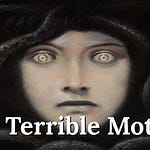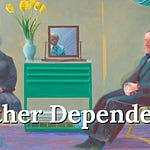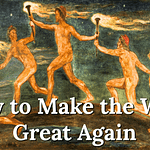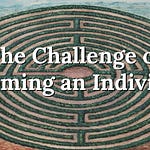The following is a transcript of this video.
“Men, it has been well said, think in herds; it will be seen that they go mad in herds, while they only recover their senses slowly, one by one.”
Charles MacKay, Extraordinary Popular Delusions and the Madness of Crowds
In a functioning society, one can assume that most people, most of the time, will behave in a sane and civilized manner. But sometimes we cannot make this assumption; sometimes acute levels of fear and anxiety spread throughout a population and trigger a widespread psychological regression to a herd psychology. In this video we explore how social crises make us susceptible to this type of regression, which can lead to widespread immorality, outright madness, and even totalitarian rule.
“The masses always incline to herd psychology, hence they are easily stampeded; and to mob psychology, hence their witless brutality and hysterical emotionalism…”
Carl Jung, The Practice of Psychotherapy
To understand the nature of a herd psychology, we must look back in time. For as Jung noted:
“[The psyche] has been built up in the course of millions of years and represents a history of which it is the result. Naturally it carries with it the traces of that history, exactly like the body, and if you grope down into the basic structure of the mind you naturally find traces of the archaic mind.”
Carl Jung, Collected Works Volume 18
For much of human evolution, our ancestors lacked a well-developed sense of individuality – that is, they did not feel or perceive themselves to be separate from the group or tribe. Rather, their sense of self was tightly tied to their membership in a tribe and hence their capacity to think and act independently was limited.
“Primitive man thinks and acts collectively. Without his fellows, the individual is nothing. His family, his tribe acts in him.”
Marie-Louise Von Franz, Collected Works Volume 2
The term participation mystique, coined by the French anthropologist Lucien Lévy-Bruhl, captures the essence of this tribal, or herd, psychology. Participation mystique refers to the way in which primitive man was psychologically merged with others – his psyche existing in a state of unity, or unconscious identity, with his clan. Or as Carl Jung put it:
“The further we go back into history, the more we see personality disappearing beneath the wrappings of collectivity. And if we go right back to primitive psychology, we find absolutely no trace of the concept of an individual. Instead of individuality we find only collective relationship or what Lévy-Bruhl calls participation mystique.”
Carl Jung, Psychological Types
Lévy-Bruhl believed that the psyche of modern man has outgrown the participation mystique of herd psychology. Carl Jung disagreed. According to Jung, while modern humans have evolved the capacity for individuality, we still possess a latent herd psychology that can supplant our capacity to think and act independently.
“Once the I was hidden in the herd: and now the herd is still hidden in the I.”
Friedrich Nietzsche
In summarizing Jung’s thoughts on modern man’s susceptibility to a herd psychology, the psychologist Erich Neumann wrote in the Origins and History of Consciousness:
“Group unity in participation [mystique] is still so widely prevalent, even in modern man…Although enjoying a higher conscious development, probably, than any previously attained by man, modern individuals, for all their conscious achievements, are still deeply embedded in the tissue of their group and its unconscious laws.”
Erich Neumann, Origins and History of Consciousness
In the modern day a mass regression to a herd psychology is typically triggered by a social crisis, be it a war, economic collapse, political upheaval, or a public health crisis. For when men and women feel in danger and incapable of facing up to a threat on their own, they instinctively seek safety in numbers. This can take the form of a physical gathering, where people band together to defend against a threat. But this seeking of safety can also manifest psychologically, via a regression to the primitive state of participation mystique and a psychological merging with the group. In this state, even those who are socially isolated or alone seek security by instinctively mimicking others and conforming to the collective in matters of thought, behavior, and belief. This herd psychology is based on the following idea: if I am too weak to deal with the threat individually, the best option is to think and act as others do, to blend in with the crowd, and to hope that in so doing I will be safe. Depending on the nature of the threat this strategy can be somewhat effective, however, it comes with a cost. For a regression to a herd psychology is accompanied by a weakening of consciousness and the erosion of critical thinking, reason, and free will, which leaves the psyche undefended against the more primitive and irrational elements, such as emotions, instincts, and unconscious forces.
“Helplessness and panic lead to group formation, or rather to a clustering together in masses for the sake of gregarious security…Group formation under the influence of panic cannot be called an organization because it is not an attempt based on reason and will but on a fundamentally emotional movement.”
Carl Jung, Collected Works Volume 18
Or as Erich Neumann echoes:
““The group [or herd] psyche…is characterized by the primary preponderance of unconscious elements and components, and by the recession of individual consciousness…when consciousness is insufficiently differentiated from the unconscious, and the ego from the group, the group member finds himself as much at the mercy of group reactions as of unconscious constellations. The fact that he is preconscious and preindividual leads him to experience and react to the world in a way that is more collective than individual, and more mythological than rational.”
Erich Neumann, Origins and History of Consciousness
In regressing to a herd psychology, modern man adopts the thought and behavior patterns of primitive man. One such pattern is deference to authority and blind obedience to leaders.
“It seems to be unavoidable that…group formations regress to primitive tribal associations that are held together…by a chief.”
Carl Jung, Analytical Psychology: Its Theory and Practice










